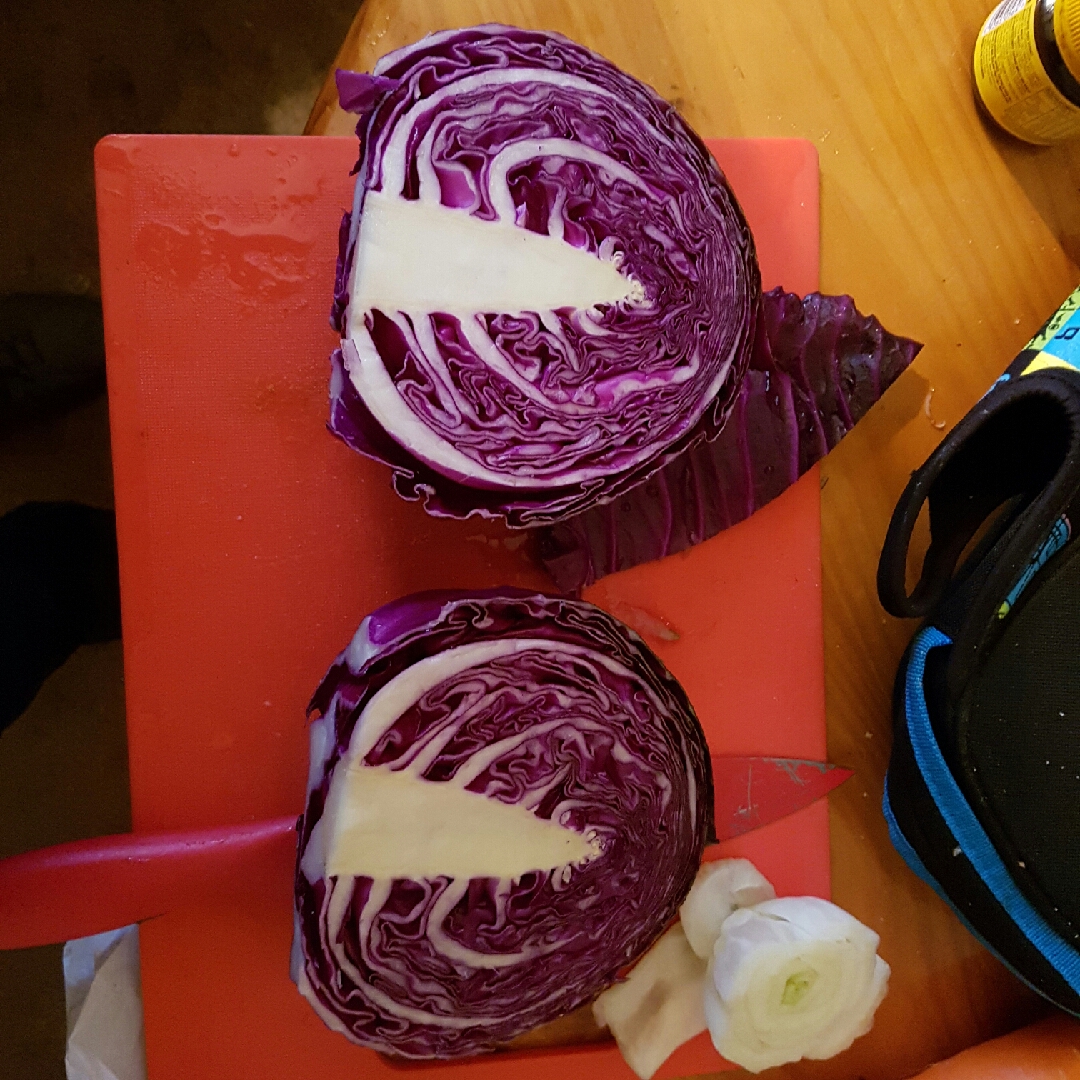
Brassica oleracea var. rubra (Capitata Group)
Red Cabbage
Cabbage is a leafy green (or red, or white) vegetable often with a dense-leaved head. It can be cooked, or eaten raw. 'Red Cabbage' produces dense heads of dark purplish red leaves with white stalks, which has a more peppery flavour than green varieties.
Contributed by @peltier_clan77
-
Full sun to partial shade
-
Occasional watering
-
Full Frost Hardy: 5F (-15°C)
-
Free draining and fertile
Common name
Red Cabbage
Latin name
Brassica oleracea var. rubra (Capitata Group)
type
Annual
family
Brassicaceae
ph
6.0 - 7.5 Acid - Neutral
Plant & bloom calendar
-
Best time to plant
-
When to harvest
full grown dimensions
 0.40 M
0.40 M
0.40 M
0.40 M
Brassica oleracea var. rubra (Capitata Group)
Cabbage is a leafy green (or red, or white) vegetable often with a dense-leaved head. It can be cooked, or eaten raw. 'Red Cabbage' produces dense heads of dark purplish red leaves with white stalks, which has a more peppery flavour than green varieties.
Propagating by seed
From Late Winter TO Late Spring
Sow seeds in trays in the greenhouse in late Winter. Sow the seeds about 1" apart, and thin out the weaker plants as they grow. Or, for a later crop, sow direct in the soil in mid Spring.
Planting
From Early Spring TO Early Summer
Seedlings started off in the greenhouse should be hardened off gradually before being planted outside. Plant 12" - 24" apart (depending on the size of the variety being grown) and allow at least 1' between rows. Firm the plants in well, and give them a really good puddle of water. Seedlings that were sown direct in the soil should be thinned out to 12" apart (or replanted)




















